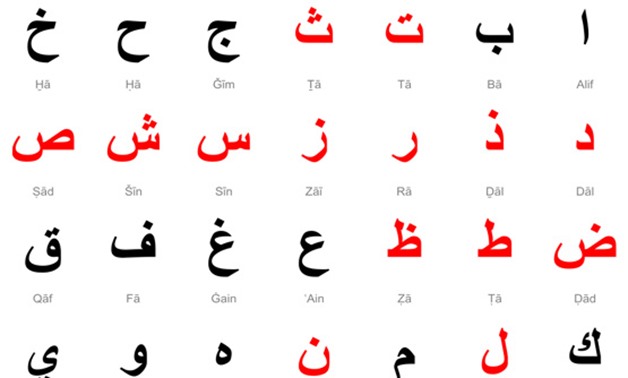
Arabic Alphabet - Creative Commons via Wikimedia
CAIRO - 25 May 2017: British Council urges schools in UK to teach Arabic language after it concluding it’s the second most important language in the future of British students.
Arabic language is growing in UK as approximately 159,000 people speak Arabic according to a report released earlier by the British Council, marking it as the 6th most spoken foreign language in the UK.
England rarely featured Arabic language 28 years in shops, labeled products, and books. It was also never required to study as a second language taking part of the General Certificate of Secondary Education (GCSE); however other languages were offered such as French and German.
Students who had to take Arabic GCSE exam haven’t learned about it from the start; however the situation has changed over the years because the diversity of ethnic backgrounds.
The British Council confirms that Arabic is an important language because it is spoken by more than 400 million people and has helped developing science and culture during pre-Islamic era until this day.
Other fields that Arabic contributed in include poetry, philosophers, and mathematics. Well-known among 26 countries worldwide, Arabic is also the native language for Muslims.
Several aspects including Britain’s export links, diplomatic relations, security priorities, holiday destinations, and government trade priorities require awareness of Arabic language.
Arabic has currently become a common language in the streets of UK where it is popular among the Arab/ Muslim community in the country, specifically the ones owning the capital’s top destinations including The Shard, London Dockland, Chelsea Harbour and Harrods Store , among others.
The British government has decided to remove required languages in 2004 to 14 to 16-year old which led to the decline in French as a common language; however paved way for other languages to appear in the spectrum. Arabic became popular by 82 percent among GCSE students between years of 2002 and 2012, removing French that was once the primary foreign language in the country.
The British Council has later sent a package called “Language & Culture” to approximately 5 thousand primary schools in the country to encourage them to learn about Arabic as a subject and open up the Arabic culture.
The purpose of the package intended to consider Arabic as a foreign language that is required at Key Stage 2 in the education process in England; however this step is challenged by progress in professional development, resourcing, progress from primary school to secondary school, and the duration of the period dedicated for languages in school curriculums.
A report released by the Organization for Economic Co-operation and Development (OECD) emphasized that England is among the countries dedicating time to teach modern languages in primary and secondary schools.
Comments
Leave a Comment